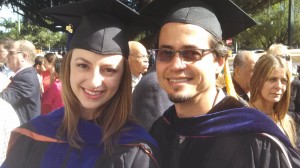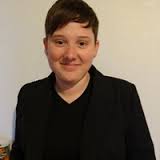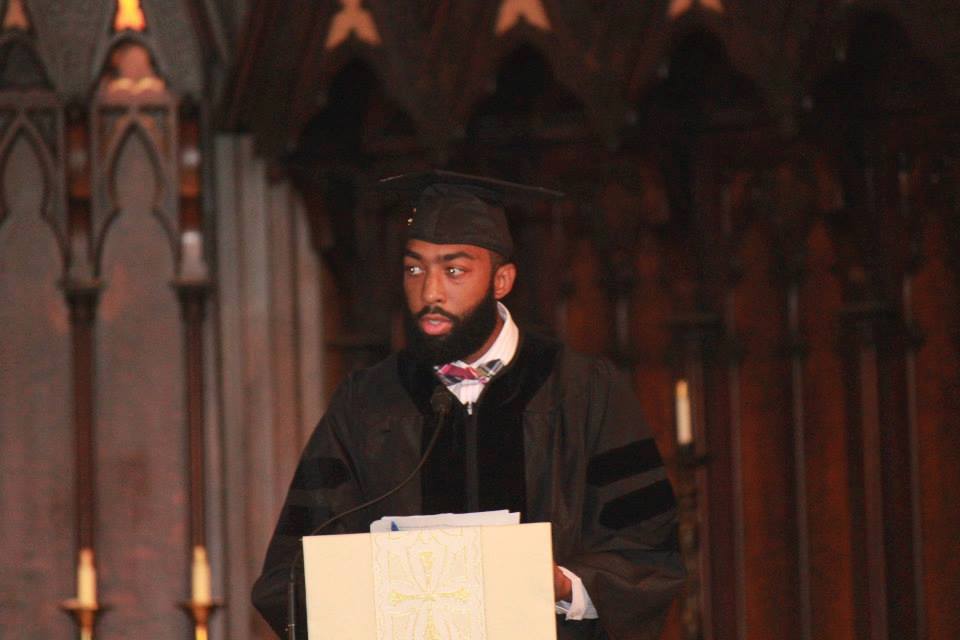While I love seeing graduation pictures of friends and colleagues on Facebook, it makes me think what a sudden change life brings after the celebration wears off. It seemed like one day I was knee-deep in dissertation data, and the next day I was hanging my new diploma on the wall of my new job here at APA. The transition from graduate student to early career psychologist (ECP) is fast, and sometimes furious. I asked three graduates from one year ago how they navigated life after the diploma.
Meet the grads:
- Rachel Becker Herbst is a 2013 graduate of the Counseling Psychology PhD program at the University of Miami and a postdoctoral fellow in Pediatric Primary Care at Children’s Hospital Colorado.
- Amanda Kraha is a 2013 graduate of the PhD program in Experimental Psychology from the University of North Texas and will be a lecturer at Indiana University East this fall.
- Steven Kniffley is a 2013 graduate of the PsyD program in Clinical Psychology from Spalding University School of Professional Psychology and a Child and Adolescent Acute Services Psychology fellow at Cambridge Health Alliance/Harvard Medical School. He will be an assistant professor in Wright State University’s School of Professional Psychology this fall.
What has surprised you thus far about being on the other side of the doctorate?

Rachel Becker Herbst and her advisor, Dr. Etiony Aldarondo.
Rachel: Life catches up with you! Relationships, finances, and life decisions once in deferral re-activate, bringing relief that you can devote time to them, but they require more effort than you anticipated.
Amanda: Ageism is definitely something that has surprised me. I’ve actually had staff try to kick me out of my classroom (during a class, unfortunately) because they assumed I was a student. I was told to expect resistance from students due to my age, but that just hasn’t been the case—overwhelmingly it has come from staff and fellow faculty.
Steven: The aspect of graduation that I have found most
challenging is the transition from a trainee identity to a professional identity. Inherent in the student identity is an expectation of evaluation, deferment of final decisions to a supervisor, committee, or program, and a learning focus rather than a doing focus. Within a professional identity, the evaluative component includes a fluid self-directed evaluation; the idea that one is fit to do the work of psychology independently.
What advice can you pass on?

Amanda Kraha.
Amanda: I’d have to say get away from the “graduate student” mentality as soon as possible. If you start acting like faculty, you will start thinking like them. This transition will make both phone and campus interviews much easier.
Rachel: Network with other ECPs (early career psychologists) and lean upon mentors to learn how to navigate your post-graduate life. Learn strategies for loan repayment and EPPP studying, strive toward work-life balance, and navigate your newfound identify. Use your post-doc year to solidify your professional and personal identity, goals, and desires. Finally, ask questions. Many professionals have taken creative routes to their current positions. They are typically open to using their own experiences to share life lessons and struggles.

Steven Kniffley.
Steven: I have had to come to terms with the idea that I bring to the table a valuable skill set that should be compensated appropriately.
Have a diploma yourself, dear readers? Leave your thoughts and advice in the comments!
